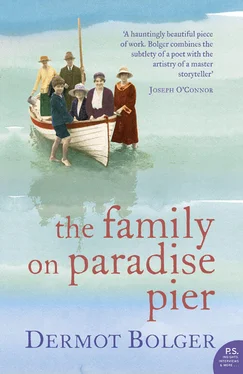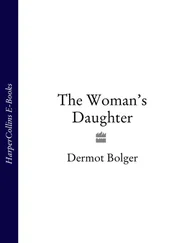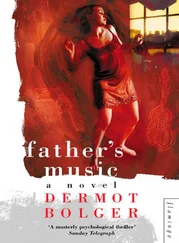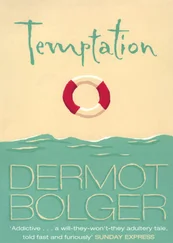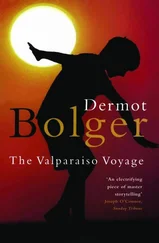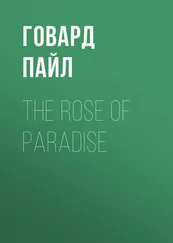The unexpected jolt of the train woke him as he crested the waves. Some zeks came out of their torpor and began to talk, wondering if they would be allowed into the air. Others shouted for quiet so they could listen for the click of rifles and the panting of dogs. Brendan discreetly checked that his bread was still there. He longed to still be asleep, yearned for the salty tang of seawater at Bruckless Pier and wanted his family to know that he was still alive. No zek spoke now but he sensed their terror. Because there was no sound of guards’ voices, just the leisurely drone of an aeroplane approaching.
Nettles were in flower on the fringe of the small Mayo wood, with a peculiar beauty that people rarely looked beyond their poisonous leaves to see. Eva watched a Red Admiral alight on the tip of a leaf and the butterfly’s colouring reminded her of the dying glow of the turf last night when she had paused, after blowing out the wick, to gaze back at the fire which moments before had seemed dead in the candlelight. Yet in the dark it had been possible to glimpse the turf embers still faintly beating like two red wings.
Eva was noticing such details now that she had the freedom to see things. Freedom seemed a peculiar word in times of war, but this was how Mayo felt to her soul after escaping from England. The freezing winter was now just a memory. In January her husband had written from barracks to describe the Thames frozen over for the first time in fifty years. Every tiny Mayo lake had been the same, with local children tramping across the ice to pull home whatever firewood they could scavenge. When the Irish Times carried a picture of Finns attempting to hack away the corpses of invading Russian soldiers frozen to the ground, the icy backdrop could have been any white-capped Mayo hillside.
For much of January Eva had been snowed into Glanmire Wood with her two children. Playing and squabbling, drawing pictures on the walls of abandoned rooms and singing hymns at dusk, Francis and Hazel had longed to hear another voice. One night all three heard an unearthly cry from the woods and gathered at the front door to gaze out at the snow, the unnerving wail reminding them of the banshee. Convinced that Freddie’s Territorial regiment had been dispatched to join the desperate battle abroad, at that moment Eva felt sure that her husband was dead. As ever, eleven-year-old Hazel proved the level-headed one.
‘It’s a dog,’ the girl had cried. ‘Trapped out there.’
Hazel had not waited to get properly dressed, but ran into the snow with Francis following and Eva trying to keep up – more concerned for their safety in the snowdrifts than for the dog. It had taken ten minutes to locate the collie’s cries and dig her out. The children carried her back to the house, refusing to change their drenched clothes until they found a blanket to wrap the starved creature in. The dog’s ribs were so exposed that it seemed she would never recover. She survived though and so did they, despite the February storms that shook all of Europe as if God was moved to fury by mankind’s rush to slaughter.
They had safely come through two winters to be happily becalmed in the warmth of this summer’s afternoon with no wind to disturb the trees encircling their crumbling home. The Red Admiral fluttered out onto the uncut lawn where Francis lay bare-chested, intoxicated by the high-pitched warble of two goldcrests in the wood. Returning to Ireland had restored his confidence. He was king of his castle here, venturing in his canoe down the Castlebar river or tramping the bogs where his father loved to shoot, but armed only with binoculars to watch for snipe among the reeds. Eva tried to keep his education going, but he only became excited about Latin when a neighbour loaned him a study of Irish trees. Now on walks through Glanmire Wood he eagerly displayed his knowledge. The hazel, with its coppery-brown bark and dangling yellow catkins, was called Corylus avellana. The birch with its sticky long winter buds and winged nutlets was Betula alba. He even told her Latin names for absent species that he intended to plant one day. Arbutus unedo , called the strawberry tree because its clustered fruit was covered with tiny warts and resembled strawberries. If Francis had his way Eva doubted if he would ever leave this wood again, because here he was Adam in all his innocence, reminding her of her youngest brother, Brendan, on those long childhood afternoons when they used to bathe at Bruckless Pier.
Eva watched the collie rouse herself from the front steps and pad across the lawn to collapse beside Francis. The boy lazily stretched out his hand and the dog rolled over to expose the freckled stomach she wanted rubbed.
Eva had a list of urgent tasks to jot down, but despite having taken pencil and paper outside she was too caught up in this miraculous heat to focus on responsibilities. Hazel emerged from the stables where she had been brushing down her pony and went to fill a bucket with water as the pump handle creaked in rusty protest.
‘I’m going to the kitchen,’ she announced. ‘I’m going to make bubbles.’ But the girl paused to stare past the branches of the sweet chestnut framing the avenue. Hazel had sharp hearing but soon Eva also heard the jingle of a bicycle circumventing the deep ruts on the overgrown path. She could not prevent herself being seized by a familiar fear, a residue from her childhood in the Great War when silence would envelop Dunkineely village whenever the postmaster left his office with a telegram. Was it news of Brendan or her parents? Surely Freddie, with his club foot, would not be sent into battle, no matter how desperate the war effort. But perhaps age and disability meant nothing, with Mussolini conscripting boys at fourteen, barely older than Francis. Eva lowered her pencil and tried to pray for all those she loved whom she knew to be in danger.
Full-length drapes across the window gave the Oxford bedroom an appearance of twilight, though it was only mid-afternoon when Mrs Goold Verschoyle woke. For most of the night she had fretted about her husband’s safety as he patrolled the blacked-out streets as an air raid warden. So far, Oxford had escaped the fate of Coventry and Southampton, but some nights the fires in London were so great that their glow was said to be glimpsed even at this remove. Only after hearing Tim return safely at dawn had she allowed herself to fall asleep. But there was no sign of him having come up to bed. She lay on for a moment, recalling her dream about Donegal. She could still see Mr and Mrs Ffrench crossing their lawn from Bruckless House down to the stone pier with trays of homemade lemonade for the visiting swimmers. Brendan had loved their lemonade, often prolonging his thirst so as to savour the taste. Brendan, her youngest, had been like a fish in her dream.
A constant struggle with arthritis had left Mrs Goold Verschoyle’s face severely lined. Her disability was so acute that holding a pen was torture: still she refused to stop writing to British and Soviet officials. Each line represented physical agony, but she was motivated by a need to quench the greater anguish in her heart. Today she determined not to upset herself by sifting through the replies piled in the bedside drawer – curt responses expressing regret at being unable to supply any information about her missing son. Today she would make herself look well for Tim. Painfully she brushed her hair, still soft and fine like a child’s. Through the open wardrobe door she glimpsed the mothballed dresses she had once worn at parties in Donegal. She put down the hairbrush on the dressing table beside a copy of The Great Outlaw – her favourite book about Christ – and opened a drawer to examine the small bottles of perfume she was carefully nursing there.
Читать дальше
